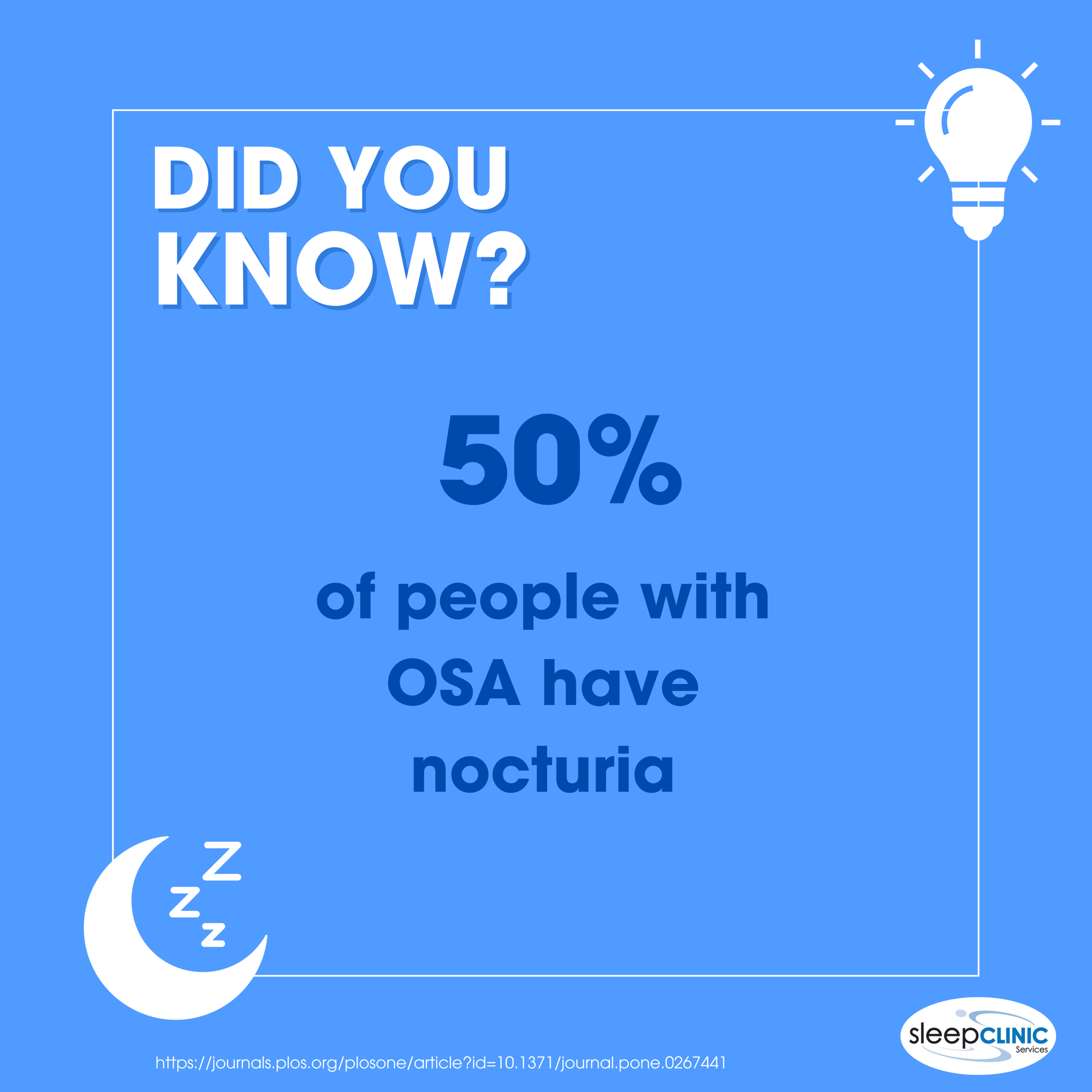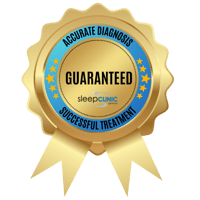Sleep Soundly: 7 Effective Tips to Reduce Nighttime Urination
It's a frustrating and familiar experience for many of us: finally getting into a deep sleep, only to be rudely awakened by the urge to go to the bathroom. Dealing with nighttime urination, also known as nocturia, can disrupt your sleep patterns and leave you feeling worn out the next day.
Although you might not hear about it often, obstructive sleep apnea (OSA) - a serious form of Sleep Disordered Breathing (SDB) - is linked to nighttime urination. In fact, about half of those who have OSA also suffer from nocturia.
In this article, we'll discuss the link between nocturia and sleep apnea and explore seven effective tips to help reduce nighttime urination to help you sleep soundly through the night.
So, say goodbye to restless nights and hello to uninterrupted, rejuvenating sleep as we guide you on the path to a more peaceful sleep experience.
What Is Nocturia?

Nocturia is defined as waking two or more times during the night to pee. It's normal to wake up once or perhaps twice during the night to use the bathroom, but more frequent nighttime urination can be a sign of an underlying health issue.
In addition to sleep apnea, other medical conditions that can cause nocturia include diabetes, kidney disease, and overactive bladder.
What Causes Nighttime Urination?
There are several reasons why nocturia happens, and it's crucial to figure out exactly what's causing it because that's the key to finding the best treatment.
Some common causes include:
❌Excessive Fluid Intake
❌Hormonal Imbalance
❌Urinary Tract Infections (UTIs)
❌Enlarged Prostate
❌Diabetes
❌Overactive Bladder
❌Certain Medications
❌Heart Conditions
❌Neurological Disorders
❌Obstructive Sleep Apnea
How Is Nighttime Urination Linked with Sleep Apnea?
When you have sleep apnea, your breathing repeatedly stops and starts during sleep. These pauses in breathing can lower oxygen levels in the blood and make your heart work harder. This stress affects organs, including your kidneys.
To deal with this stress, your body releases hormones like atrial natriuretic peptide (ANP) which controls the balance of salt and water in your body. When there's stress on your heart, ANP levels go up - which makes your kidneys produce more urine.
Sleep apnea also prevents you from reaching deep, restorative sleep. Normally, a hormone called antidiuretic hormone (ADH) reduces urine production when you sleep. But when sleep apnea disrupts this process, the kidneys make more urine.
On top of this… the frequent disturbances caused by sleep apnea mean you are more likely to become more aware of the need to go to the bathroom.
If you experience nighttime urination and notice other OSA symptoms like loud persistent snoring, feeling tired during the day, trouble focusing, or waking up with headaches, it's crucial to talk to your doctor.
The good news is… if sleep apnea is properly diagnosed and treated, it can often reduce these symptoms and help with nighttime urination.
Tips to Help You Get Better Sleep
Getting a good night's sleep is essential for overall health as it helps with hormone regulation, boosts your immune system, and improves cognitive function.
By addressing the underlying cause of nocturia and implementing strategies to improve sleep quality, you can take steps to improve your well-being.
Tip 1: Limit fluid intake before bedtime
It’s important to remain hydrated but one of the most effective ways to reduce nighttime urination is to limit fluid intake before bedtime. Reduce your fluid intake for at least two hours before bed. This can help to decrease the amount of urine produced during the night.
Tip 2: Avoid caffeine and alcohol
Caffeine and alcohol are two of the most common culprits when it comes to nighttime urination. Both substances are diuretics, meaning they increase urine production.
Tip 3: Empty your bladder before sleep
By making sure your bladder is as empty as possible before you go to sleep, you can decrease the likelihood of waking up during the night to use the bathroom.
Tip 4: Create a calming bedtime routine
By engaging in calming activities before bed, such as reading, meditating, or taking a warm bath, you can help to reduce stress and anxiety, which can contribute to nocturia.
Tip 5: Managing stress and anxiety
Stress and anxiety can have a significant impact on sleep quality, leading to insomnia and nocturia. To reduce nighttime urination, it's important to identify and manage sources of stress and anxiety in your life.
Tip 6: Making dietary adjustments
Certain dietary adjustments can help to reduce nighttime urination and improve sleep quality. For example, incorporating foods that are high in melatonin, such as cherries and bananas, can help to regulate the sleep-wake cycle and promote more restful sleep.
Tip 7: Seek professional help
If you think your nighttime pee breaks could be part of something more serious like sleep apnea, then it’s important to reach out for professional advice. Sleep Clinic Services also offers a free, professionally recognised risk assessment, which you can take online here.
Your Journey Towards Healthy Sleep
Conditions like nocturia and sleep apnea can be frustrating and disruptive, but they don’t have to control your life.
It's important to seek professional guidance if you're experiencing frequent nighttime urination, as it can be a sign of something more serious. And if you think sleep apnea might be at play - give us a call so that we can help you get the restful, rejuvenating sleep you deserve.
At Sleep Clinic Services we give you the help you need, when you need it. From free screening to at-home sleep studies to effective treatment. Guaranteed.
Get in touch today for an obligation free chat with one of our friendly Care Coordinators, or schedule a call and we will call back at a time you choose.

What's it like getting a sleep study with Sleep Clinic Services?


















Care you can trust. For over a decade, Australia's best provider.

Get in touch
Are you ready to reclaim peaceful restorative sleep?
Wherever you are, we can help.
As Australia's leading provider of telehealth screening, diagnosis and solutions for 'sleep disordered breathing' sufferers, we care for people all around Australia.
Questions?
Call during business hours or fill in the form and we'll call you back at the time you choose. No cost, no obligation.


